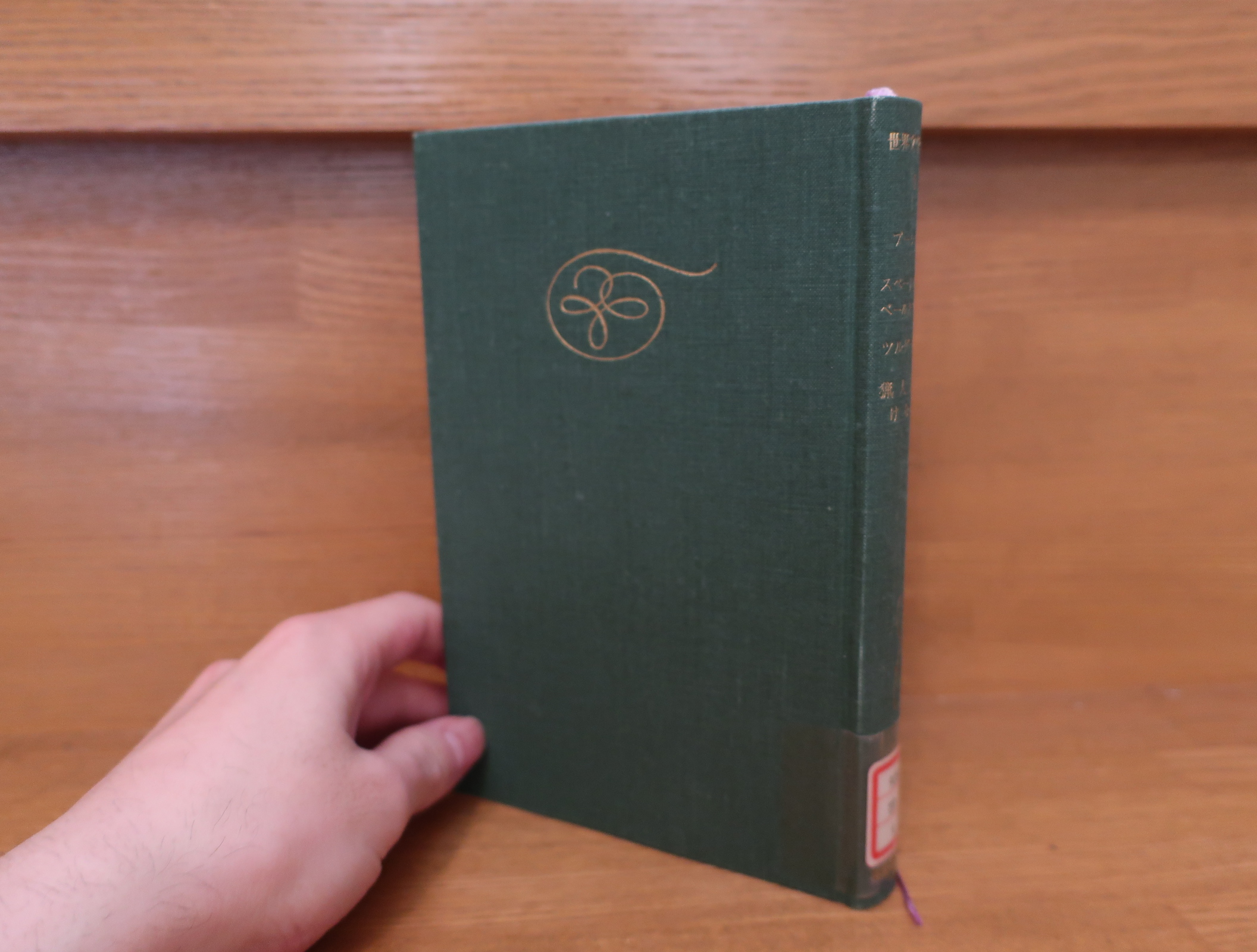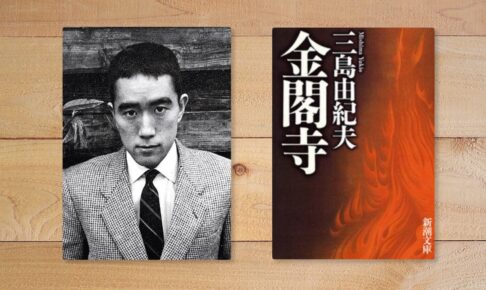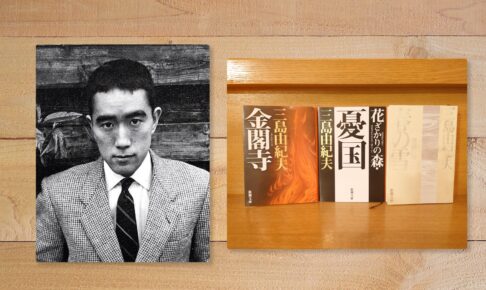Synopsis of Turgenev's "Smoke" - If you want to know about art in literature, this book is for you!
Smoke is a full-length novel published by Turgenev in 1867.
I read "Kemuri" translated by Kiyoshi Kannishi in "Sekai Bungaku Zenshu 9 Pushkin Turgenev" published by Kawade Shobo Shinsha.
Let's take a quick look at the synopsis. It is a bit long, but Henri Troyer's "Biography of Turgenev" was very easy to understand, so I will quote from that.
The love storyline in "The Biao" revolves around the same conceit as that of "The Nobleman's Nest." Litvinov, the protagonist of this new novel, is another one of Hamlet's suffering hamlets who lacks decisiveness.
He is at rest in Baden-Baden with his fiancée, the gentle Tatyana, and her aunt, Kapitrina Shestova.
He encounters Irene, a passionate, flirtatious, young, beautiful woman. It is the woman he once fell in love with and even thought about marrying. But after a successful social career, Irene left him for a more glamorous destiny.
She reigned in Baden-Baden over the city's small Russian community with her affable, elegant and well-dressed general husband.
When she meets Litvinov again, she can only think of one thing: to win his heart back. To win his heart back again. Soon he gave in.
Knowing that another love affair with a capricious woman like Irene would be his undoing, Litvinov broke up with his fiancée and asked Irene to elope with him.
At the last minute, she decides to leave her love and stay with her husband, even though he has destroyed Litvinov's life twice.
The protagonist is "slumped" in pain on the train back to Russia, watching the train smoke drift into the station platform by the wind.
He was the only one in the car," Turgenev writes. 'There was no one to disturb him. 'Smoke, smoke,' he repeated over and over. And suddenly it seemed to him that everything was smoke. His life, his life in Russia, everything that pertains to human beings, and especially everything that is Russian. Everything is just smoke, vapor, he thought. Everything is constantly changing, everywhere new images, new phenomena are appearing to replace the old, but in reality everything remains the same. Everything is rushing and rushing toward some unknown goal, and then it all vanishes without accomplishing anything."
After a few years, Litvinov, now at peace with his feelings of regret, is reunited with his former fiancée Tatyana, and they enter into a peaceful marriage. Irene's goal is to become a successful socialite. She is rich and pampered, but unfortunately, her social position causes her to be viewed with suspicion by those in very high places. Even young men leave her because of her "thorny temperament.
Suiseisha Henri Troyer, Biography of Turgenev, translated by Hiromiko Ichikawa, p. 139-140
The protagonist Litvinov comes to the German holiday resort of Baden-Baden to meet up with his kind and faithful fiancée who loves him deeply.

He was supposed to have a peaceful and happy life with her in front of him.
. ..until I met that woman again.
Litvinov is attracted to Irene, whom he meets again, even though he knows it's a bad idea.
This Irene is a very cunning and devious woman. Litvinov is unlucky to have been spotted by such a woman.
Litvinov, however, is not quite the same as Litvinov. He seems to be strangely worried too much and seems to want to head for his own destruction. He himself was the cause of his own downfall.
This story revolves around these two people.
Thoughts - From a Dostoevskyian Perspective
This work is also associated with Dostoevsky.
In a previous article, "Dostoevsky and Turgenev's big fight in Germany in the history of Russian literatureAs I told you in "The Turgenevs," Turgenev and Dostoevsky had a big fight in Baden-Baden, Germany, when this work was published in 1867.
At that time, Dostoevsky used the novel as an opportunity to take down Turgenev, which angered him to no end.
In fact, the film "Smoke" was very poorly received in Russia.
Beginning around 1860, Turgenev's works around "The Night Before" and "Father and Son" brought him severe criticism from the Russian literary world.
This novel, too, was seen as a satire of the Russian situation, and was angrily criticized by Russians.
At that time, there was a tendency in the Russian literary world to evaluate works only if they made a strong political or ideological statement. Turgenev, however, avoided making such strong assertions, and instead, he simply observed society, aiming to sublimate his observations into art. Such an attitude was considered weak and outdated by the radical literary circles in Russia.
This was discussed in a previous article, "Synopsis of Turgenev's "The Night Before" - A long novel about Russia just before the liberation of the serfs.Please refer to the story I told you in the following section.
Well, this work was not well-received by the Russian literary circles at the time, but how was it when I read it in modern Japan?
To be honest, it was not interesting.
Litvinov and Irene's irrepressible love, and the little men surrounding them. It was pretty tough to be shown their interactions endlessly. There is not much storyline development, just Litvinov being pushed around, and his constant worry and regret over his unfaithfulness to his fiancée.
So is the novel not worth reading?
No, that's not it.
In fact, for me, the novel "Smoke" became one of the most impressive of Turgenev's works.
I found a commentary at the end of the book that explains why this work, which should not be interesting, left such a strong impression on me.
In the last chapter of his long novel "Smoke," the main character Litvinov, who has broken up with a woman, looks out the train window at the white steam and murmurs that everything in the human world is "smoke, steam," which is very literary. It is even more literary because there is no need for forensics.
It is almost as if the author had been patiently working on this long, several-hundred-page book for the sake of writing this passage.
Life is smoke - what beautiful words. It is a word that reeks of nihilism and resignation. Is it an obvious philosophy? Literature is the beautiful expression of an obvious philosophy. Literature is not thought. Thought can become literature, but literature cannot become thought.
Kawade Shobo Shinsha, Sekai Bungaku Zenshu 9 Pushkin Turgenev, p. 453
Some line breaks have been made.
This is it. This is exactly what it is!
The view from the train window of Litvinov, who has lost everything at the end of this novel.
And looking at the smoke, he muttered, "Smoke, smoke." Litvinov murmured.
This scene gave me the feeling as if the scene was appearing before my eyes.
I felt as if I were watching a scene from a movie. And what a beautiful scene it was!
The commentary says, "One could almost be forgiven for thinking that the author has been patiently working his way through hundreds of pages just for the sake of writing this passage." I really understand what is said. I really think so.
It is true that this novel is not interesting.
But when you get to the very end, to this smoke scene, you say, "Oh...!" It will be "Oh...!
You can tell at once that I wrote this novel for this purpose.
Then the lack of interest up to that point is suddenly blown away.
This is art! I was amazed that this is art in literature.
What a poetic and beautiful scene, I couldn't stop opening my mouth.
This work was indeed unpopular in Russian literary circles.
But that is in a political and ideological sense.
We who live in Japan today have no such restrictions.
The most wonderful aspect of this work, the overwhelming beauty of a scene of smoke seen from a car window, is directly felt.
The Russian literary world of the time was too emotionally angry to pay attention to this art form. Even Dostoevsky was scathing in his dismissal of this work.
Yes, this work is not interesting. Ideologically, I can understand why Dostoevsky would be offended. However, it seems to me to be a good work to learn about Turgenev's art and art in literature.
I personally highly recommend this work. This work left a particularly strong impact on me among Turgenev's works.
The above is a synopsis of Turgenev's "Smoke" - If you want to know about art in literature, this is the book for you! The above is a synopsis of Turgenev's "Smoke".
Next Article.
Click here to read the previous article.
Click here for a list of Turgenev's recommended works.
Related Articles







































